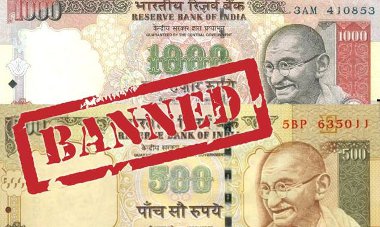“The Crazy Economic Idea” of Demonetization: India’s Prime Minister Modi’s “Bank Transaction Tax” May Lead To Larger Conflicts

The current Prime Minister of India, Narendra Modi, has a history of racism and can be described as a neo-fascist. A more pleasant label is Hindu nationalist but that essentially means the same.
It now turns out that Modis extremism in not confined to the nationalist bend but includes some crazy economic ideas.
Modi decided to demonetize the country from one day to another. Every bank note valued at over US$7 was taken out of circulation. The rather crazy idea behind this is to move all monetary transactions to some electronic money systems and to then tax each and every transaction. All other kind of taxes would be abolished.
Only a lunatic without any knowledge of actual economic issues can support such a move.
The predictable result of the sudden demonetization is a liquidity crunch. There suddenly is only half the amount of money in circulation than before. Bills can not be paid, salaries are withheld, services are unused because there is no money to pay for them. The government wants to move the people to open up bank accounts but the banking infrastructure in India is rudimentary, the systems running are old and the software inadequate to handle the masses. Mobs Lock Up Bankers as Pay Day Turns Pain Day in India is a current Bloomberg headline.
The protests have not reached their climax yet but expect some serious riots in India over the next weeks and months should Modi continue on this path. It will be even worse when, in a second step, the new tax system is introduced.
Taxing all transactions is digressive. The poor will end up up paying more than the rich as all kinds of property taxes and the like will end. Estimates say that the tax rate would have to be 4 to 6% on each monetary transfer to be able to eliminate all other taxes.
Manufacturing, which builds complex products from a number of pre-processed parts and inputs, will end up highly taxed. Each screw in a part that goes into a car will have been taxed when transferred from the steelmaker to the wholesale steel deal to the screw maker to the part manufacturer to the car manufacturer to the consumer. With several percents of taxes on each of these transaction this will end up as a very expensive car. There are products which easily include a dozen such stages or more.
“Sin taxes” on alcohol, gasoline and other socially or environmentally harmful stuff will be missing as regulatory instruments. Custom issues and double taxation agreements with other countries will be highly problematic.
The Indian bureaucracy is not the most capable in the world. The banking infrastructure, especially in the still mostly rural parts of India, is only sparse. It is practically impossible to have such a brutal, large conversion of the whole economy without major breakdowns.
The first real economic trouble will be noted soon. Liquidity crunches are usually followed by sharp drops in productivity and general economic activity. India until recently had a fast growing economy. It is very likely to now go into recession.
Taxes on a currency will lead to a shadow economy where people will used other means to pay, especially for small daily transfers. The new currency will probably be cigarettes or whatever can be bargained. The tax income will therefore likely be lower than estimated as the use of official money, then electronic money, in daily life will decline.
Modi was in favor of a transaction tax economy since at least 2013 though it did not play a role in his campaign and policy speeches. The people are unprepared for it and the large bumps that will come with its implementation.
My fear though is that Modi will do the usual nationalist / fascist trick when problems with the economy occur. He is unlikely to give up on his aims. He will rather look for an enemy and accuse it of causing the problems. Divert the peoples attention by a war on – take your choice: Pakistan, China, Muslims in general, any local opposition or whatever. There will always be someone to blame.
So far Modi had a rather successful run as Premier. His tax project may well ruin that. Given his background his solution will likely be to seek a conflict. In a nuclear India with a nuclear arch-enemy Pakistan nearby that is some worrisome perspective.

